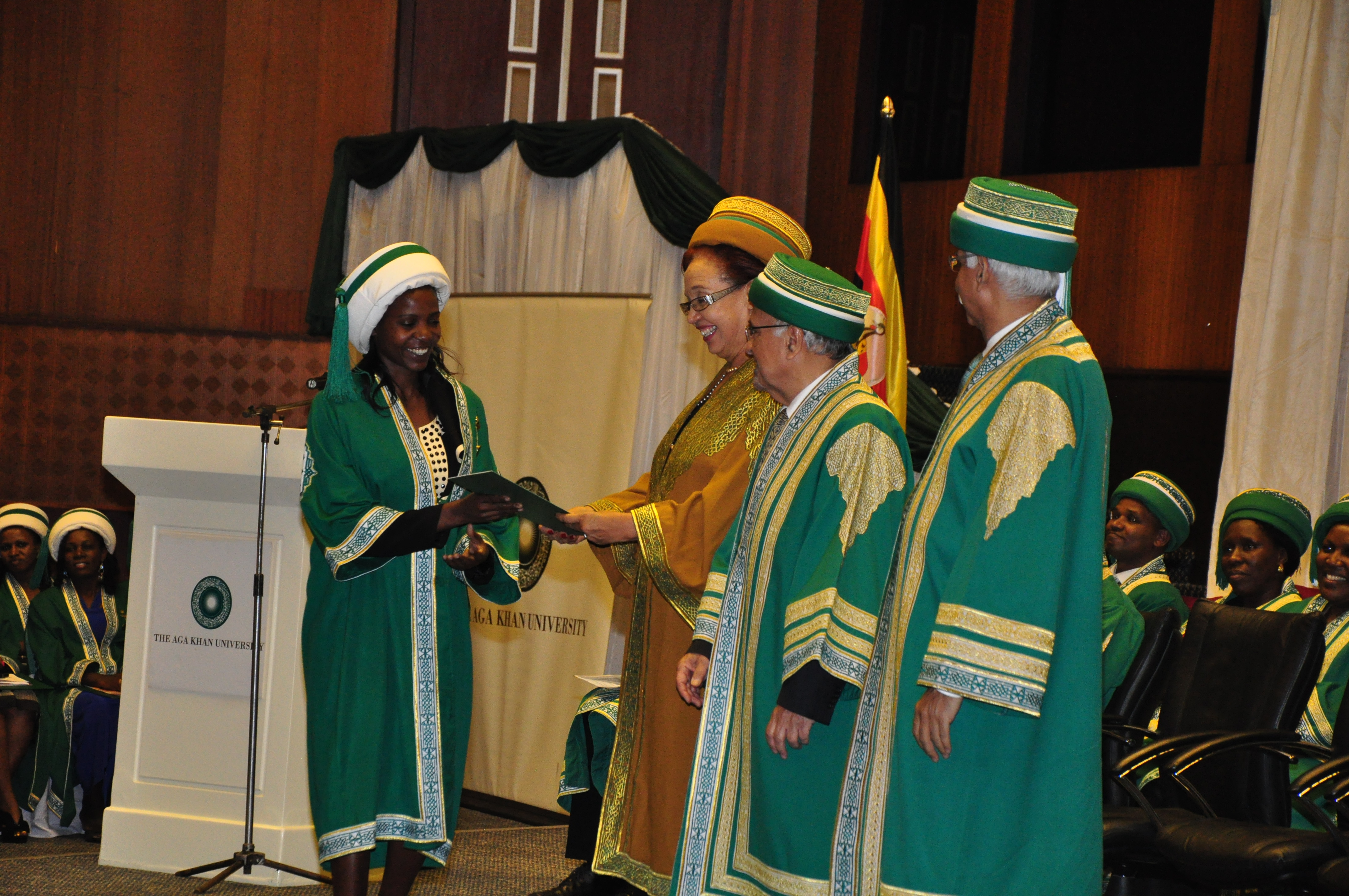Josephine Awor, BScN' 13

Josephine Awor's academic
achievement was the highest in the Bachelor of Science in Nursing degree
in the Kenya, Uganda and Tanzania campuses of AKU's School of Nursing
and Midwifery.
Josephine Awor, BScN ’13, grew up poor in eastern Uganda, one of
eight children of a secondary school teacher. Today she holds a Bachelor
of Science in Nursing from AKU, where she posted the highest GPA of any
nurse in the class of 2013 across the University’s three East Africa
campuses.
“AKU has changed how I practice nursing,” said Awor,
33, who manages a staff of 14 at Mpumudde Health Centre in Jinja,
outside of Kampala, and plans to pursue a master’s degree. “I’ve learned
to have a lot of time for my patients and to really communicate with
them.”
She cites the example of a pregnant woman who became
despondent after learning she was HIV-positive. “She was talking of
dying and committing suicide. So I took her to a side room and spent a
lot of time with her. I thoroughly explained the meaning of the test,
the implications, and what she can still do to protect the life of this
baby in her womb. I gave her examples of people who are out there doing
well, much as they are HIV-positive. Eventually, she accepted to start
taking drugs.”
Thereafter, Awor continued to follow up with the
woman, including during breastfeeding. So far, the baby has tested
negative twice, a promising sign, and Awor is praying that the next
test, at 18 months, will also be negative. “I think that was really a
great intervention,” said Awor, one of the 840 individuals who have
earned a Bachelor of Science in Nursing from AKU in East Africa.
“Everyone had given up with her. They were like, ‘No, no, that woman is
not cooperative.’ But I took time to address her problem and succeeded.”
Awor
believes that “AKU is quite different from other nursing schools. At
other places, the tutors are very rough, and they do not have the time
to sit and explain things. When you look at our national training,
students are often based in hostile environments. They learn to live
like soldiers – they feel they have to be commanded to do something.
Hospital staff may also be harsh, and people learn from that and say,
‘Oh, this is how I’m supposed to behave.’ Health workers develop a
negative attitude. But at AKU, nobody is harsh to you. You are in a
friendly environment. If you are stuck, the faculty is always willing to
explain solutions.”
“Nursing is actually the backbone of our
health system,” she added. “We’d like to have nurses out there having
an impact in the community, and that is the kind of nurses AKU is
training. Being a health worker – you are out to save lives. If you have
a passion for what you are doing, you can always make a difference, no
matter your pay.”

